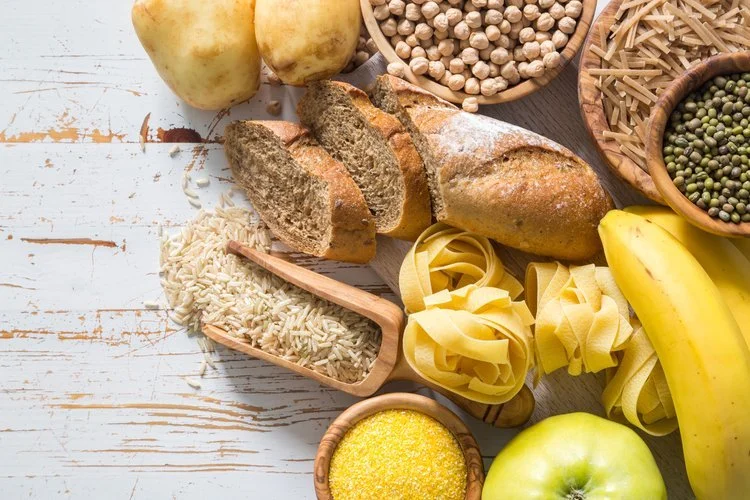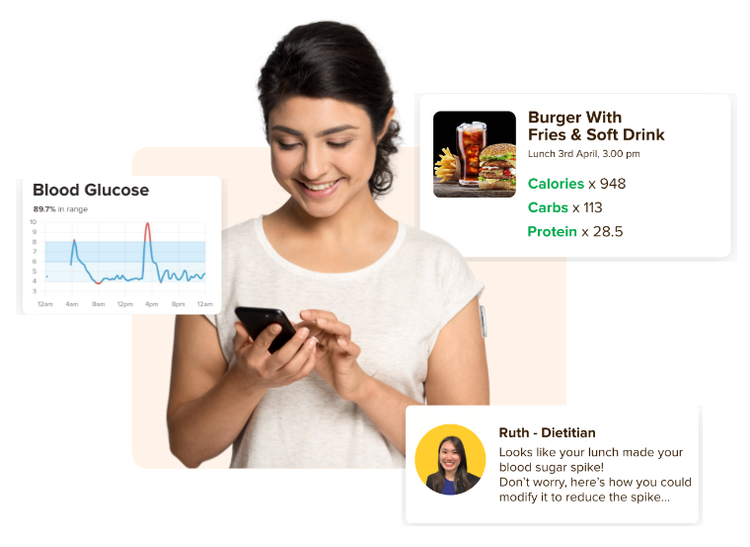The Best Food to Eat for Diabetes Management
Takeaways:
Effective diabetes management can significantly lower your risk of diabetes-associated complications like eye disease and stroke.
As what you eat directly impacts your blood sugar levels (specifically carbohydrates), nutrition is crucial in proper diabetes management.
To prevent blood sugar spikes, prioritize minimally processed, unrefined carbohydrates like wholegrains, fruits, and vegetables.
Beyond making wise dietary choices, effective diabetes management also calls for adherence to the prescribed treatment plan and healthy lifestyle changes.
Effective diabetes management can do you a lot of good.
Research shows that proper treatment & management of diabetes—and its associated conditions, namely, high blood pressure—could reduce your risk of:
Diabetes-related amputations (which are, in turn, linked with higher mortality rates)
But, of course, grasping the importance of diabetes management is one thing. There’s also the more (like, way more) complicated bit of actually doing everything you can to keep those blood sugar levels within target ranges.
Because where do you even start? Suggestion: your dietary habits.
Why start with nutrition when it comes to diabetes management?
While many things can cause large spikes in your blood sugar levels, barring certain medications, none do so quite as immediately or drastically as the foods you eat.
Or, more specifically, carbohydrate-rich foods.
When you consume too many carbohydrates in a single sitting, your body breaks it all down into simple sugars. These sugar molecules then flood your bloodstream, skyrocketing your blood sugar levels.
Now, in most cases, this wouldn’t necessarily be an issue in people without diabetes:
Their pancreas would secrete the appropriate amount of insulin, and
Their cells would respond well to insulin, readily taking up excess circulating blood sugar for energy and storage—restoring “normal” blood sugar levels
But for individuals with diabetes like yourself? It’s an issue because your:
Pancreas doesn’t produce enough insulin and/or
Cells don’t respond correctly to insulin
The result? Blood sugar levels that stay elevated. And even if you’re on diabetes medication, they may fail to bring your blood sugar levels down to your target range (because it's just too large a spike).
So, are carbs a no-no?
After all that, you may think that the next logical step is to cut out all carbs from your diet or, at the very least, restrict your intake of carbs (e.g., follow a ketogenic diet).
It’s not.
Carbohydrates are your body's primary energy source; they help fuel your brain, kidneys, heart muscles, and all kinds of life-enabling bodily functions.
Also, while some research suggests low-carb diets (LCD) may be uniquely beneficial in diabetes management, a larger body of evidence shows that dietary adherence to LCD is notoriously difficult in individuals with diabetes.
In truth, you don't need to deprive your body of its preferred energy source or try to grin and bear it through a low-carb diet you wouldn't enjoy.
To maximize your chances of staying within your target blood sugar ranges, you could simply be more thoughtful about the types of carbohydrates—and their accompanying food forms—you eat.
Let’s talk specifics: what foods should you eat? Or avoid?
You'd generally want to prioritize complex carbs that are unrefined or contain a high content of fiber(i.e., wholegrains ) over simple carbs. That’s because:
Complex carbs that are unrefined such as starches are polysaccharides which are made up of a chain of (3 or more) sugar molecules that are strung together in long, complex chains. These large sugar molecules—found in wholegrains, beans, and vegetables like corn—are broken down more slowly than simple carbohydrates (single- or two-unit sugar molecules). This means they'll raise blood sugar levels at a relatively slower and steadier rate than simple carbs.
That said, complex carbs are not necessarily better for diabetes management than simple carbs.
To illustrate this, what is healthier: potato chips (starch; complex carb) or a cup of fruits (simple carbs)? The point is that you cannot simply consider whether a food is a simple or complex carb source. Instead, you also need to look at its level of processing.
Dietary fiber is a particular type of carbohydrate found in plant foods like leafy greens and fruits. It, or more specifically, insoluble fiber, helps slow down the rate at which digested carbohydrates enter the bloodstream. This could help prevent large blood glucose spikes.
The more processed a food is, the more likely it’ll be:
Calorie-dense
High in added sugar, saturated fat, and sodium
Lower in fiber
Stripped of health-beneficial nutrients
So, as a rule of thumb, prioritize minimally processed types of carbohydrates over those more processed ones, like:
Unrefined carbohydrates over refined carbohydrates
Naturally occurring sugars over table sugar
Whole fruit over fruit juice concentrate and canned fruit
Think of diabetes management as a puzzle
While making wise dietary choices can do a lot for diabetes management, it's far from the only thing you should do to keep your blood sugar levels within range. Other "pieces of the puzzle" also include:
Sticking to your prescribed diabetes treatment plan (if any)
Dialing back on cigarettes and alcohol consumption
Need help putting it all together in a way that works for you?
Wow. That’s so many puzzle pieces to account for. Plus, to further complicate things, you’d need to figure out a way of putting them all together while navigating:
Personal dietary preferences and/or restrictions
The demands of daily life (e.g., work responsibilities, social engagements, and household chores)
If it’s starting to feel like an impossible puzzle, good news: NOVI Magnum is here to help. With NOVI Magnum, you’ll get access to a:
Specialist doctor who’ll tailor your diabetes treatment plan to your condition,
Dietitian who’ll account for your dietary preferences when educating you on the exact foods to eat (or not eat) for better blood sugar level management, and
Health coach who'll identify and work through your unique barriers in adopting and sustaining healthier lifestyle habits
It’s all the support you need to keep your blood sugar levels within range. So get started with NOVI Magnum to take control of your diabetes (before it controls you) today.




